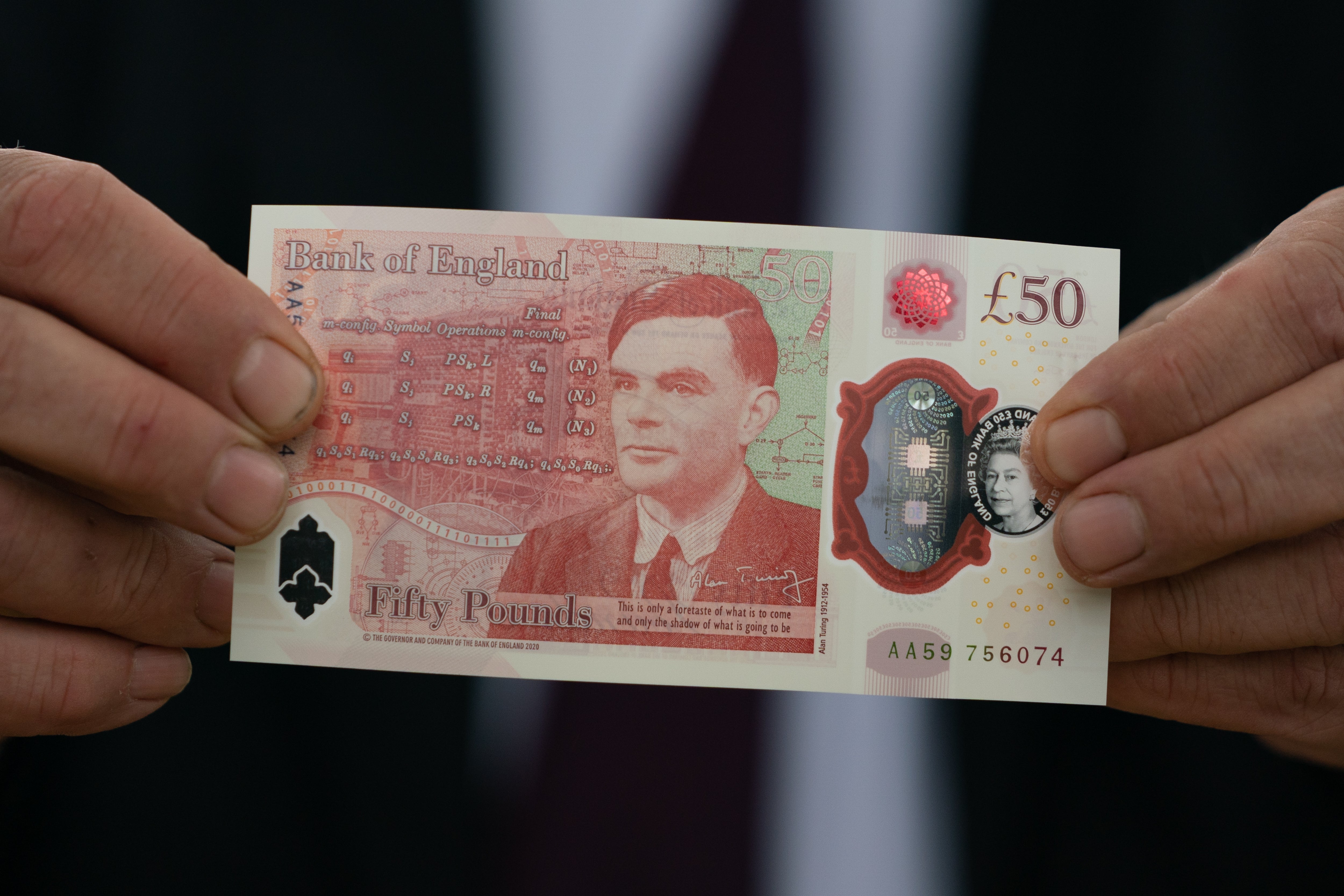
A Cambridge college has lodged new plans to erect a memorial to wartime codebreaker Alan Turing within its grounds.
King’s College said the 12ft (3.6m) sculpture would be designed by Antony Gormley and made of 19 steel blocks, weighing 3.1 tonnes in total.
Mathematician Turing, who graduated from King’s in 1934, worked with a team at Bletchley Park to crack the Enigma Code during the Second World War.
He helped shorten the conflict and was made an OBE for his contribution to the war effort.

Turing apparently took his own life in 1954, aged 41, after being prosecuted for homosexual acts, which were still considered criminal in the UK at the time.
He was given a posthumous royal pardon in 2013.
An initial planning application for a memorial was halted following objections from Historic England in 2020.
The organisation said King’s College “comprises a magnificent ensemble of historic buildings frequently depicted in the famous view from the Backs” and the sculpture would “harm its significance”.
It said the proposal would “introduce a prominent sculpture into this sensitive scene, in a manner at odds with its character”.
In a new application, submitted to Cambridge City Council this month, King’s College said it is “very keen to make some public acknowledgement of Alan Turing and his relationship with the College, the University and the City of Cambridge”.
Antony Gormley’s sculpture is designed to reflect both Turing’s brilliance and his vulnerability
It said: “Given Turing’s huge intellectual importance and his influence on contemporary science and culture, it is very apt that this acknowledgement should be in the form of a sculpture by an internationally admired contemporary artist, whose work also often depends on the use of sophisticated computing software.
“Antony Gormley’s sculpture is designed to reflect both Turing’s brilliance and his vulnerability; but at the same time the sculpture also embodies the transformation of the industrial into the information age – a transformation in which Turing played such a crucial part.”
It rejected a suggestion by a councillor that the sculpture be placed outside the front of the college.
“We fear that, if the sculpture were placed outside the College, the sense of its integration within the life of the College would be lost, and that there would be a risk that it would take on the status of an isolated icon or some kind of trophy,” King’s College said.
A decision on the application is due to be made by planning officers.







